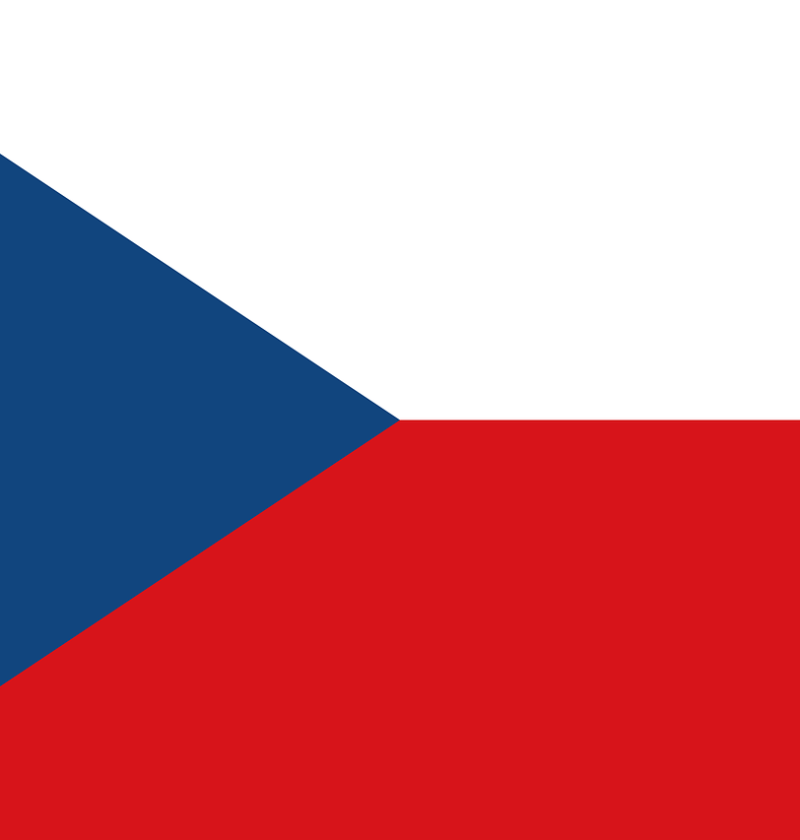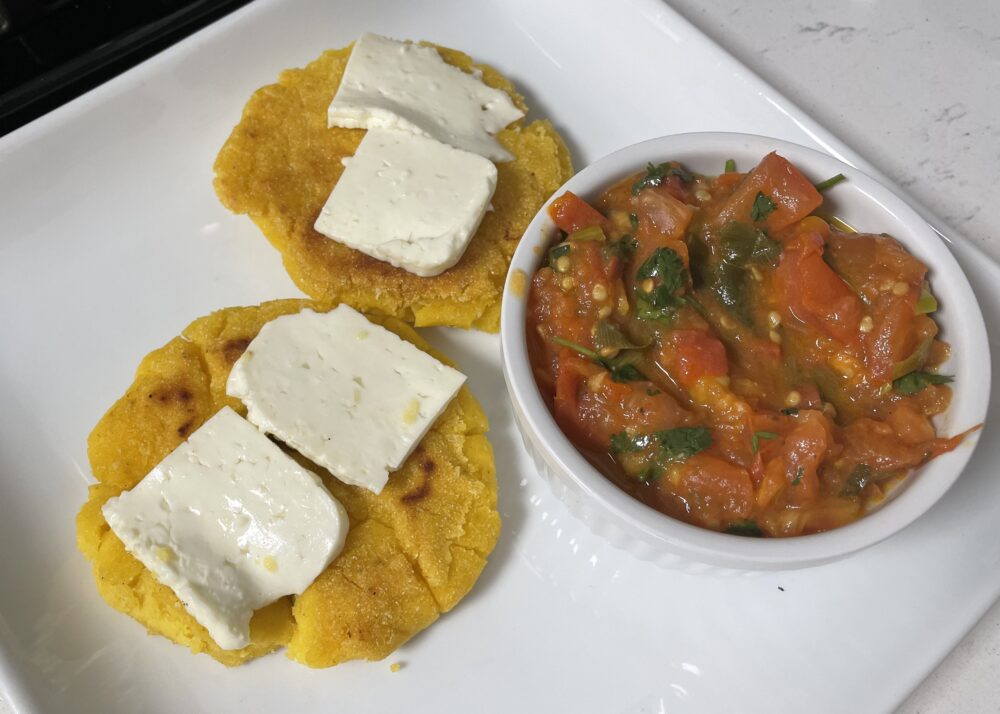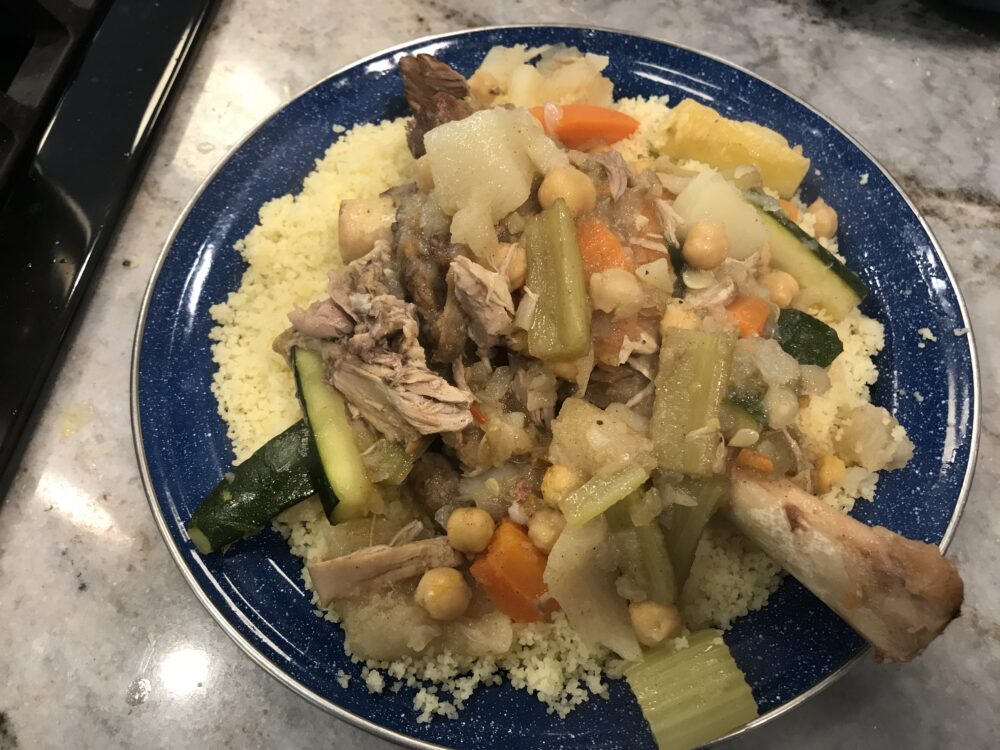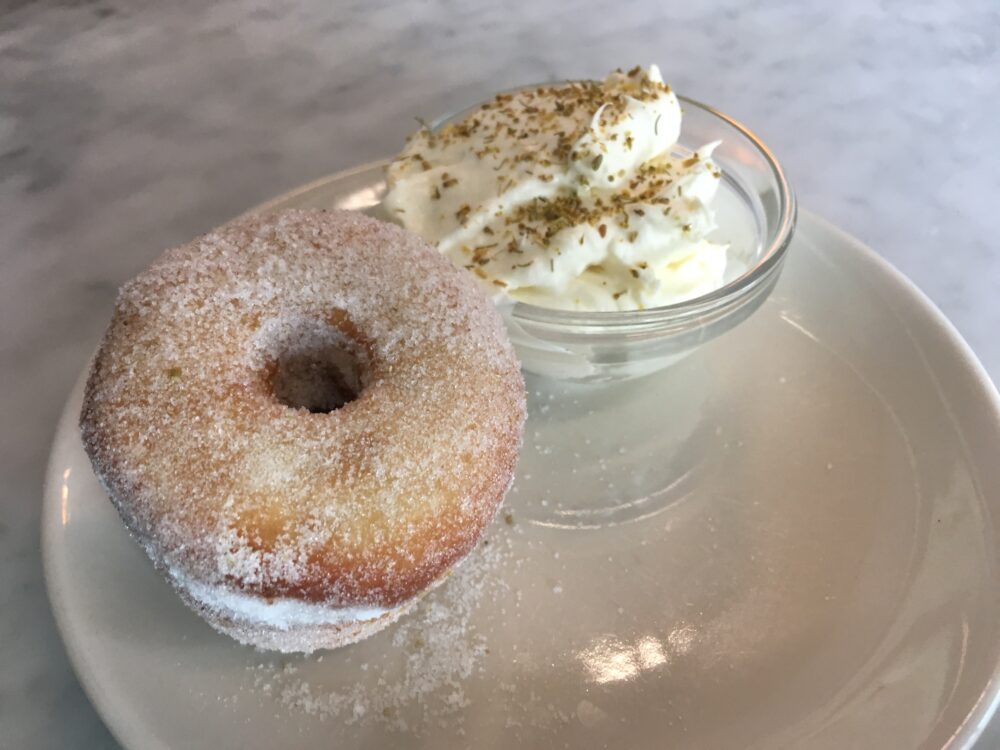I had the great fortune of visiting the Czech Republic (officially now known as Czechia) when making a series of promotional videos for the tour company I worked with. Since the company was international, we had amazing partners all over the world and I connected with many of the ones in Europe.
One of those incredible partners was Miša who now runs Prague City Adventures. She was an incredible host and we have stayed in touch. During the pandemic, like many, Miša and her company turned to Zoom to connect with travellers and introduce them to Czech culture and cuisine. Miša also happens to have a son a few years younger than Sam.
So when it was time for our Czech Republic video, it was the perfect time to re-connect with Miša, meet her son Martin, and learn how to make a proper Czech dinner from someone who lives, breathes, and eats it.
THE CUISINE

Growing up, I was very aware of the country Czechoslovakia. It’s crazy that it wasn’t that long ago that these two countries were one. But after a split in 1993, we now have two countries in Central Europe and somehow I got to visit both of them.
Stay tuned (way down the line) when we get to Slovakia on this trip. But today we’ll focus on the Czech Republic, which was once known as Bohemia and in 2016, the government decided should officially be called Czechia. But we’ll continue to refer to it as the Czech Republic (because of habit and also that is what my Czech friends told me that the people still call it).
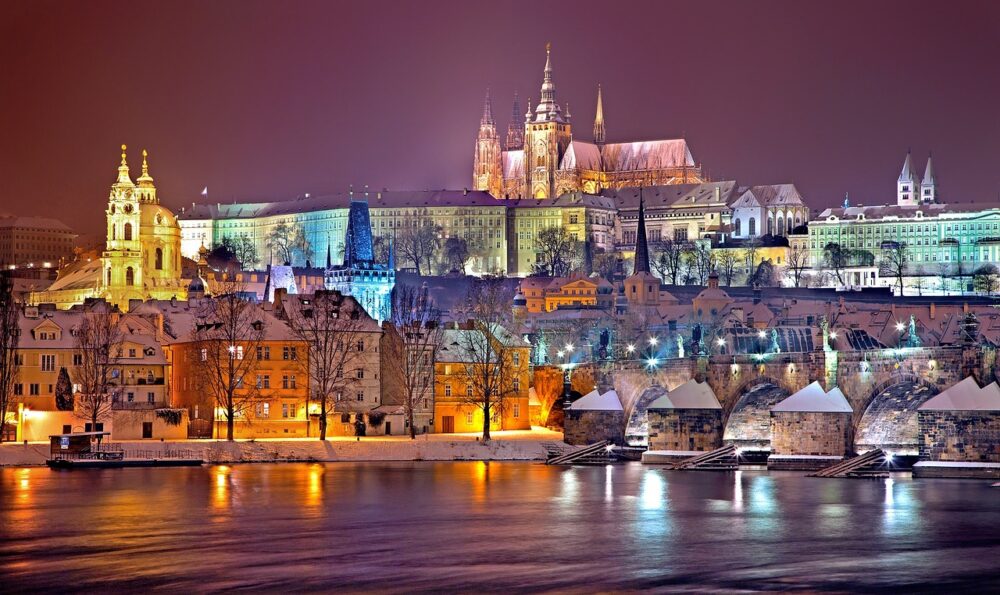
Its capital city of Prague is one of the most beautiful in all of Europe and is now finally coming into its own as an important tourist destination. I can’t recommend it enough.
Of course, a big reason for the recommendation is the distinct hearty food. It’s similar to other cuisines in Central Europe, but there are some fascinating hearty dishes that are pure Czech.
Meat, especially pork and beef, is very important – usually prepared simply roasted or smoked. They are very often served after a soup, which is almost always a course on its own, made from vegetables, herbs, and bread.
Alongside, you’ll find cabbage, mushrooms, and an array of filled dumplings.
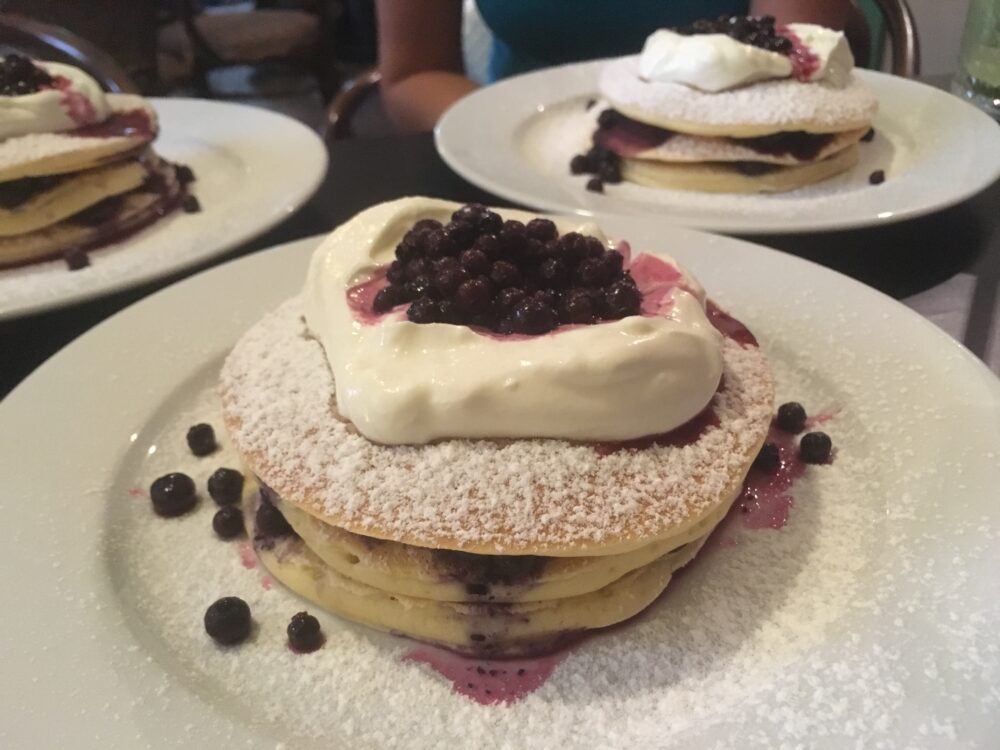
Desserts are mostly based in cheese, fruits, and pastries. Pancakes are often served as a final course and are absolutely delicious.

And finally, no Czech meal or day is complete without a beer or three. The people in this country are actually the largest consumers of beer per capita than anywhere else in the world. And they make fantastic pilsners that will make the mass produced American light beers taste like water.
Traditional Dishes:
ČESNEČKA – this potent clear garlic soup is always served with potatoes, rye croutons, and sometimes ham or bacon – it supposedly cures ailments like hangovers, but does nothing for bad breath
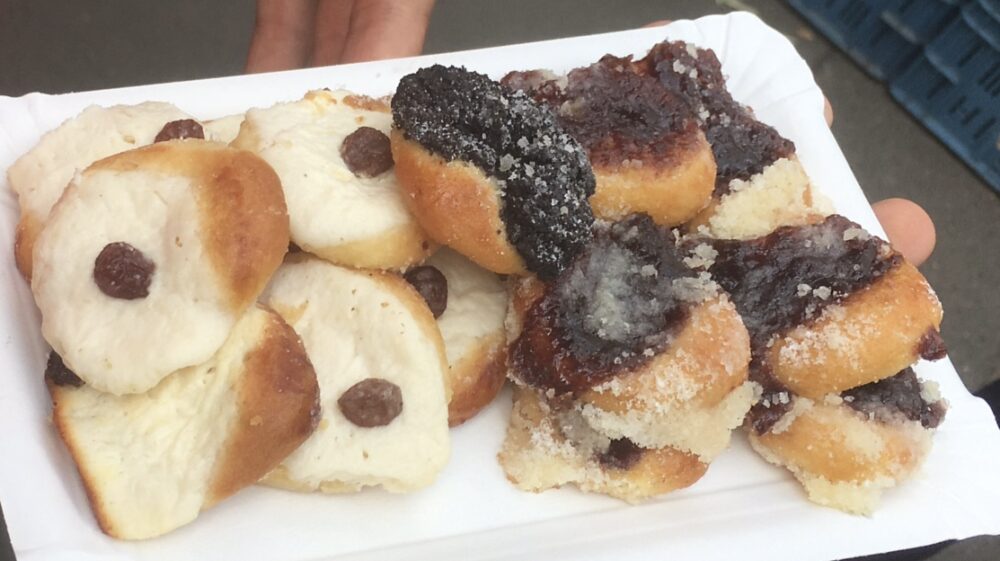
KOLÁČE (KOLACHE) – you can compare many other international dishes to kolaches, but these are true Czech all the way – a round baked pastry stuffed with sweet fillings like cottage cheese, poppy seeds, or jam
VEPŘO KNEDLO ZELO – this is officially the national dish of the Czech Republic and it’s a great one – comprised of roasted pork, bread dumplings, and sauerkraut
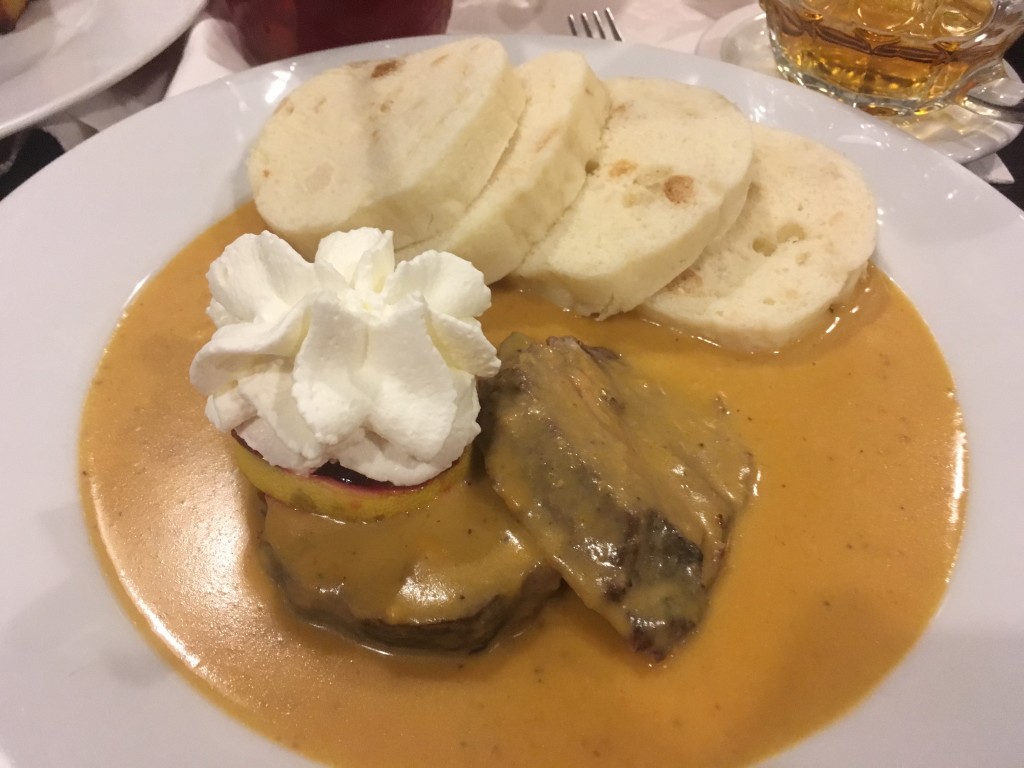
SVÍČKOVÁ – this slow-braised beef sirloin topped with a rich sauce of creamy root vegetables and served alongside bread dumplings was the best thing I tried while visiting Prague
CZECH FOOD IN NEW YORK
My first introduction to Czech food was a few months after I moved to the city and a friend of mine brought me to this very local bar/restaurant in Astoria. I don’t think I realized it was Czech food at the time, but it was the most unique and delicious meal I had ever had up to that point.
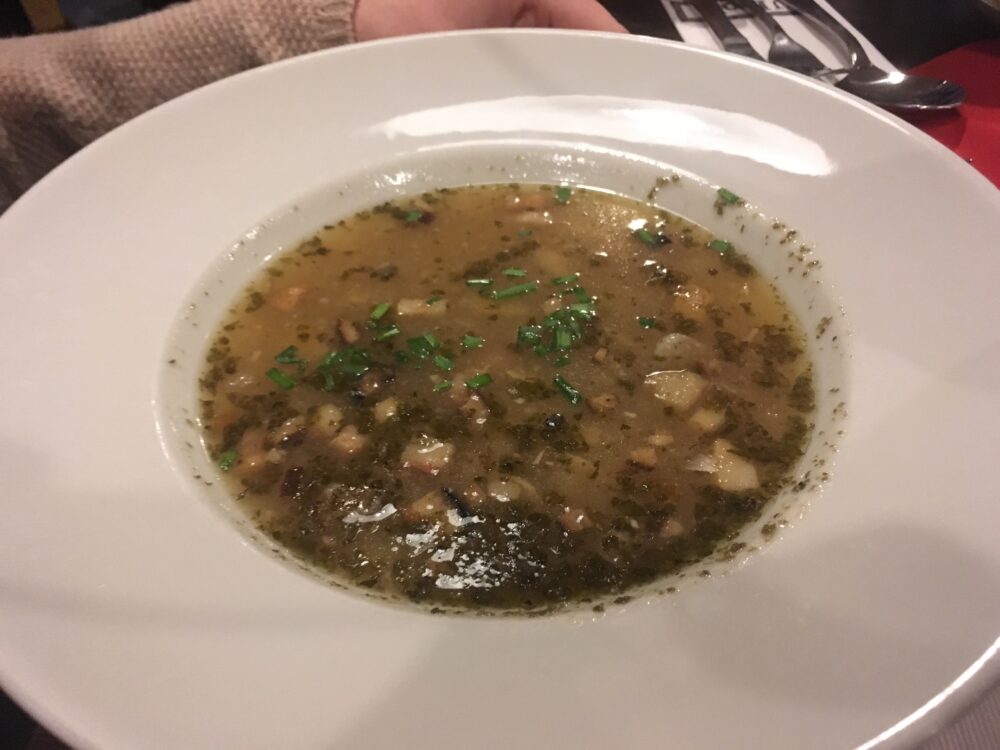
We didn’t have roasted duck, but I remember garlic soup and sautéed bread dumplings with eggs and pickles. It’s called Koliba and it’s miraculously still there. I’m embarrassed to say I have not been in years, but this journey has put it back on my radar.
Astoria is indeed the neighborhood to get a taste of some traditional Czech food. Many New Yorkers have been to the Bohemian Hall & Beer Garden (locally known as “the beer garden”) for the live music, great beer, and good times. But inside, they also serve a menu of Czech and Slovak specialities.
Nearby in Long Island City, there is an under-the-radar food shop SlovCzechVar where I found the special Czech flour among other snacks and candies. It’s a small place, but a total local gem not to be missed.
THE VIDEO
You definitely get two cute kiddos for the price of one thanks to the wonders of modern technology.
Martin is a bit younger than Sam, but knows this food as well as Sam knows his way around a dish of pasta with butter.
Both kids love to roll and mash. And while Martin is unfazed by a duck leg, Sam can’t believe that what we had in our kitchen once actually belonged on the animal that goes “quack, quack” (or “káč, káč” in Czech).
THE DISHES
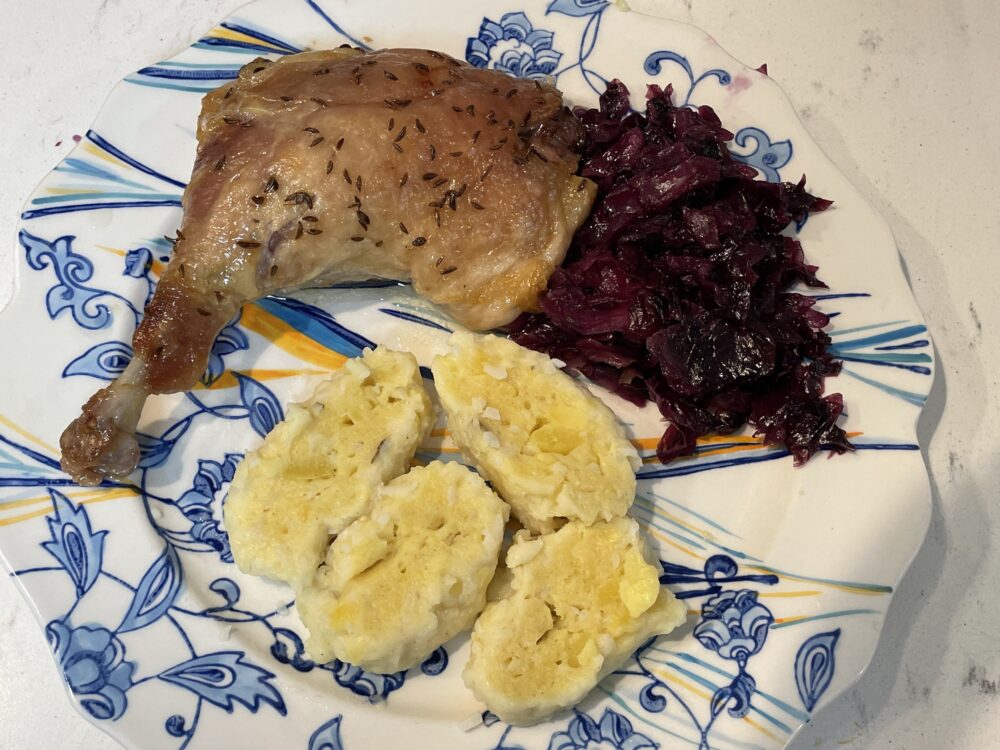
I thought I would take the advice of an actual Czech when trying to find the most traditional dish to make for this journey. Miśa didn’t hesitate to recommend this simple yet hearty dish. While it’s very different from what we consume on Thanksgiving, the components reminded me of our family-oriented holiday.
Of course, Czechs don’t celebrate Thanksgiving, but this dish is usually served during special occasions like Christmas Day, St. Václav’s Day (Czech Independence Day), and Hody (which is a fall festival)
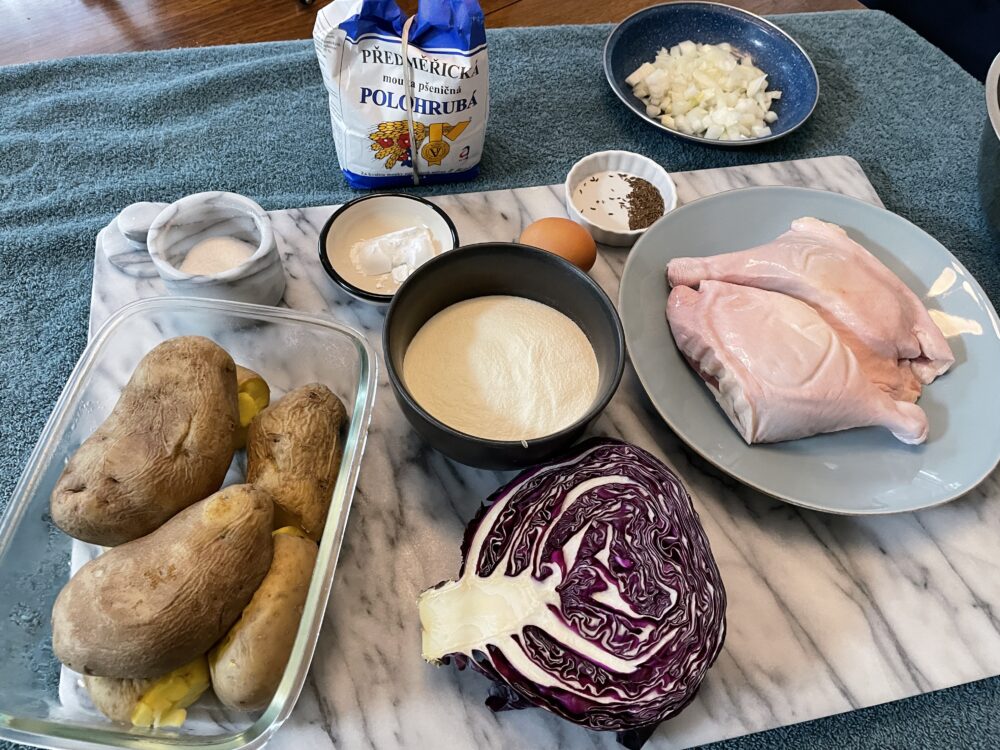
It doesn’t get more simple than this duck roasted with salt and caraway seeds. The key, of course, is to ensure the skin of the duck leg gets very crispy.
Alongside the duck, bramborové knedliky (or potato dumplings) are an absolute favorite. There are many types of Czech dumplings, including bread dumplings, fruit dumplings, and liver dumplings, but the potato ones are the classic to pair with the duck.
The potato dumplings are made from mashed potatoes, special flour, salt, and eggs. They’re mixed into a large tube before being boiled, sliced, and served.
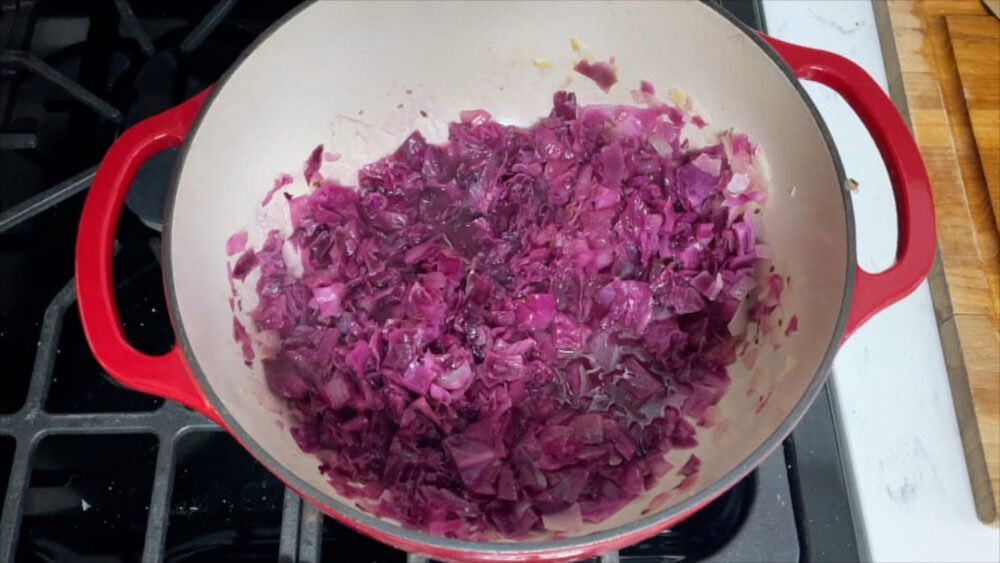
Finally, you also have to serve this with a sweet and sour braised red cabbage. Sweetened with sugar, soured with vinegar, and spiced with more caraway seeds, this is a staple in Czech cuisine and helps cut the richness of the meat. And beer, of course.
THE RECIPES
inspired by
https://www.cooklikeczechs.com
Recipe Card

Pečená Kachna from Czech Republic
Description
This beautiful roasted duck recipe is seasoned simply with salt and caraway seeds and served with traditional accompaniments.
Ingredients
Instructions
-
Preheat oven to 375°F.
-
Pat duck dry with paper towels.
-
Sprinkle salt and caraway seeds over the duck and then massage into skin.
-
Roast duck for 2 hours.
-
After 2 hours, increase temperature to 400°F and roast for another 30 minutes until skin becomes crispy.
-
Serve with potato dumplings (knedliky) and red cabbage.
Nutrition Facts
Servings 4
- Amount Per Serving
- Calories 220kcal
- % Daily Value *
- Total Fat 7.8g12%
- Saturated Fat 1.4g7%
- Cholesterol 105mg35%
- Sodium 9800mg409%
- Potassium 171mg5%
- Total Carbohydrate 6.2g3%
- Dietary Fiber 4.8g20%
- Sugars 0.1g
- Protein 31.6g64%
- Calcium 102 mg
- Iron 4 mg
* Percent Daily Values are based on a 2,000 calorie diet. Your daily value may be higher or lower depending on your calorie needs.
Recipe Card

Knedliky (Potato Dumplings) from Czech Republic
Description
It’s super fun to make these traditional dumplings made from potatoes, eggs, and flour. They go perfectly with hearty meats and stews.
Ingredients
Instructions
-
Boil the potatoes with skin on until they are soft. Let cool before peeling. This can be done the night before.
-
Peel potatoes and grate them into a large bowl.
-
Make an empty circle in the center of the grated potatoes. Crack the two eggs into the center.
-
Add flour and salt to the mixture and gently knead with your hands.
-
Add flour as needed.
-
After kneading the dough, divide it into two.
-
Roll by hand into two large cylinders or logs.
-
Carefully place logs into a pot of gently boiling water.
-
Simmer for 20-25 minutes.
-
Remove logs carefully with a slotted spoon and place on a plate.
-
Cut logs into 1/2 inch slices and serve slices with a dish like roasted duck and a beer to wash it down.
Nutrition Facts
Servings 6
- Amount Per Serving
- Calories 192kcal
- % Daily Value *
- Total Fat 3.7g6%
- Saturated Fat 1.1g6%
- Cholesterol 124mg42%
- Sodium 6510mg272%
- Potassium 217mg7%
- Total Carbohydrate 30.9g11%
- Dietary Fiber 1.7g7%
- Sugars 0.7g
- Protein 8.2g17%
- Calcium 30 mg
- Iron 2 mg
- Vitamin D 12 IU
* Percent Daily Values are based on a 2,000 calorie diet. Your daily value may be higher or lower depending on your calorie needs.
Recipe Card

Braised Red Cabbage from Czech Republic
Description
This is a very traditional and easy addition to a meal of roasted meat, especially duck
Ingredients
Instructions
-
Melt lard or butter in a large pot.
-
Cook onions until they are soft and light brown.
-
Add sugar and stir to allow it to evenly melt.
-
When sugar is melted, add the chopped cabbage and mix well.
-
Add salt and caraway seeds and stir.
-
Add in vinegar and mix well.
-
Lower heat and cover. Simmer for about 30-40 minutes.
Nutrition Facts
- Amount Per Serving
- Calories 380kcal
- % Daily Value *
- Total Fat 28.7g45%
- Saturated Fat 10g50%
- Cholesterol 24mg8%
- Sodium 4854mg203%
- Potassium 438mg13%
- Total Carbohydrate 30.4g11%
- Dietary Fiber 10.9g44%
- Sugars 15.2g
- Protein 5.7g12%
- Calcium 192 mg
- Iron 4 mg
* Percent Daily Values are based on a 2,000 calorie diet. Your daily value may be higher or lower depending on your calorie needs.
SPECIAL INGREDIENTS
Czech Flour

Believe it or not, the flour in the Czech Republic is not so straight-forward. There is a wide range of coarseness and each flour is used for different baked goods.
The one that we picked up from a local Czech market is the Polohrubá, which is semi-coarse and most similar to American Wondra flour.
For dumplings, something a little coarser might be best (like Krupice or Hrubá mouka). But, most Americans don’t live close to a speciality Czech shop in which case Wondra, or another coarse flour, will probably work best for this recipe.
Caraway Seeds
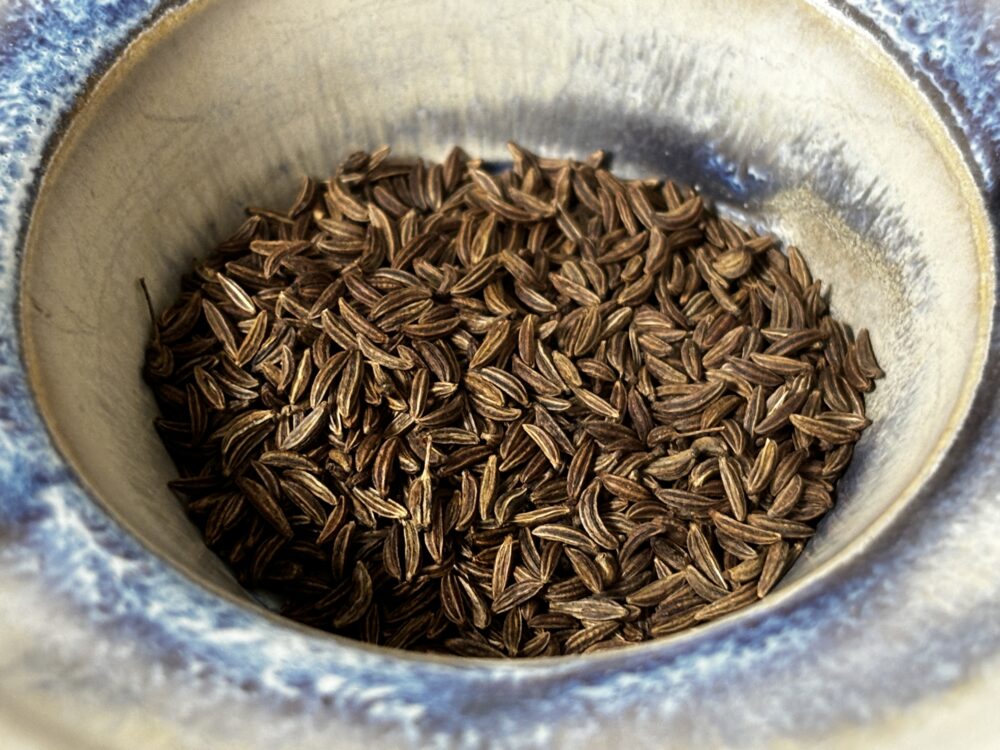
If you’ve ever been to a Jewish deli and had a bite of seeded rye bread, then you’ve had a taste of caraway.
These seeds come a flowering plant whose closest relatives are carrots, parsley, and cumin. While it’s uncommon to find them in the US outside of bread, they are used extensively in dishes from sweet to savory in the Czech Republic. It’s known as kmín and it’s one of the most important spices to the Czech kitchen.
Flavorwise, it’s quite strong, sort of similar to licorice with notes of citrus and pepper. I find it both bitter and sweet and while it tends to take center stage in dishes, it’s really a very unique flavor.
HOW WE SCREWED IT UP

Despite not having the exact flour, we did ok.
The dumplings were messy and no doubt this takes some technique and experience like only a Czech grandmother can only perfect. They were reminiscent of the ones I tried in Prague and tasted good.

The duck was absolutely delicious – my only downfall was that I should have gotten the skin a tad darker and crispier.
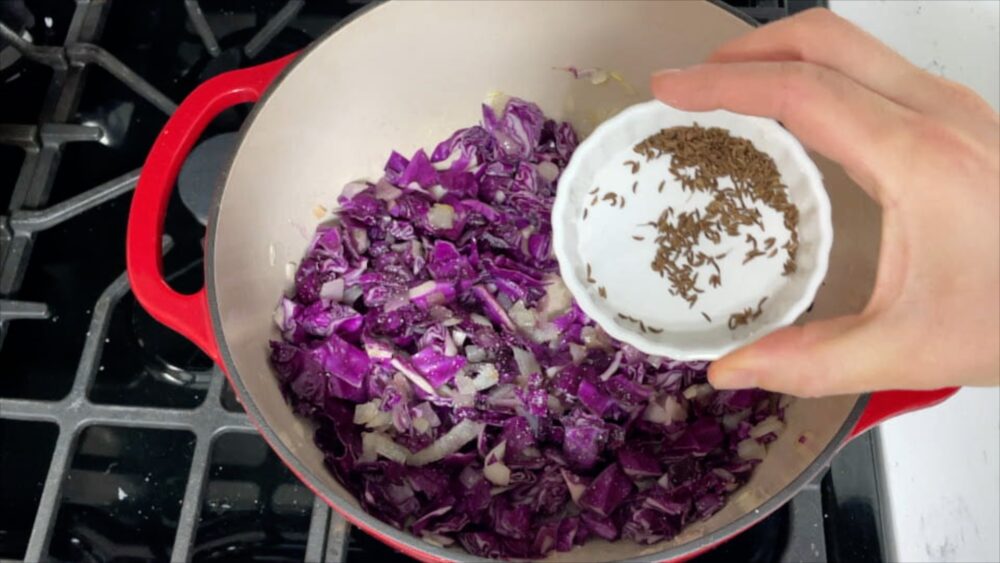
As for the cabbage, I think that came out great.
Perhaps it was Miša’s close guidance, but this was one of our more successful meals in a while.
SAM’S REACTION

Sam immediately declared that he will not try any of the dishes we made tonight. Yet somehow he ended the evening with his first taste of duck.
Perhaps it was Miśa comparing duck leg to chocolate cake, but something in my little guy got brave and he decided to try this meat that is not usually on our dinner table. His eyes lit up from the sweet richness.

The dumplings and cabbage were not gonna happen. But he did really want to try the beer, especially after seeing Martin take a swig. Of course, the drinking culture is very different in the Czech Republic and I promised Sam he would not like it now but he has plenty of years ahead of him to give beer a taste. And hopefully the first time he does, it will be a Czech pilsner. For now, he enjoyed his kombucha which is not terribly Czech.
NEXT TIME
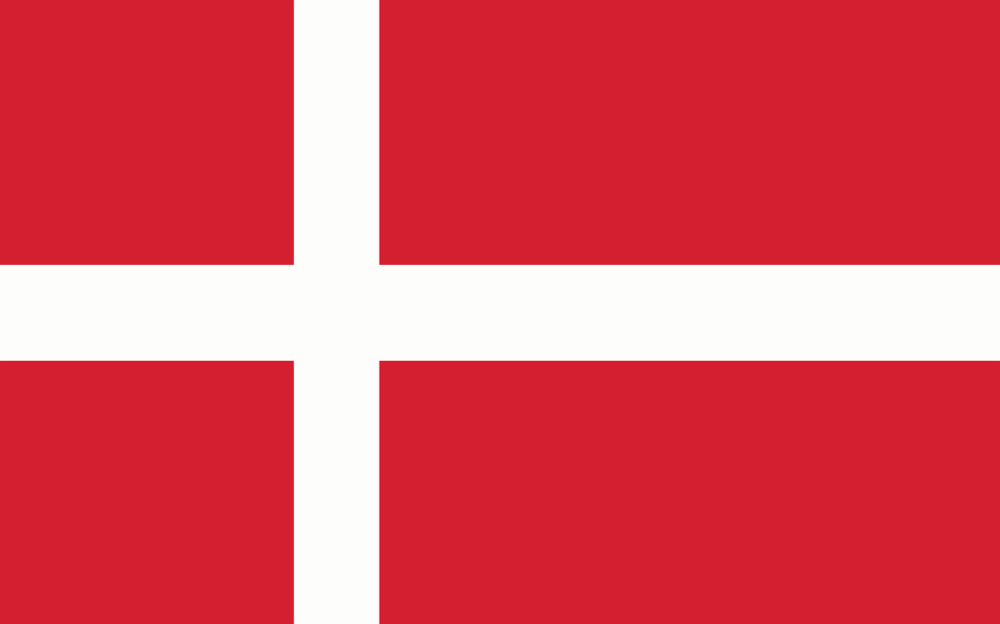
As you can see, we’ve been slowing down with these videos. As Sam gets older with other activities and with us all being long out of a pandemic lockdown, it’s not so easy to keep up. That being said, we’re not done completely. We’ll be moving into the handful of “D” countries starting with our first trip to Scandinavia. It’s one of the food capitals of the world – Denmark!

